Celebrate a big Bix weekend in QC

This weekend will be a very special one for fans of Bix Beiderbecke, jazz and music history.
Sunday, March 10 is the 121st anniversary of Bix’s birth in Davenport and this year is the 100th anniversary of the first recordings by the legendary cornetist, pianist and composer. The following events are scheduled to honor the occasions:
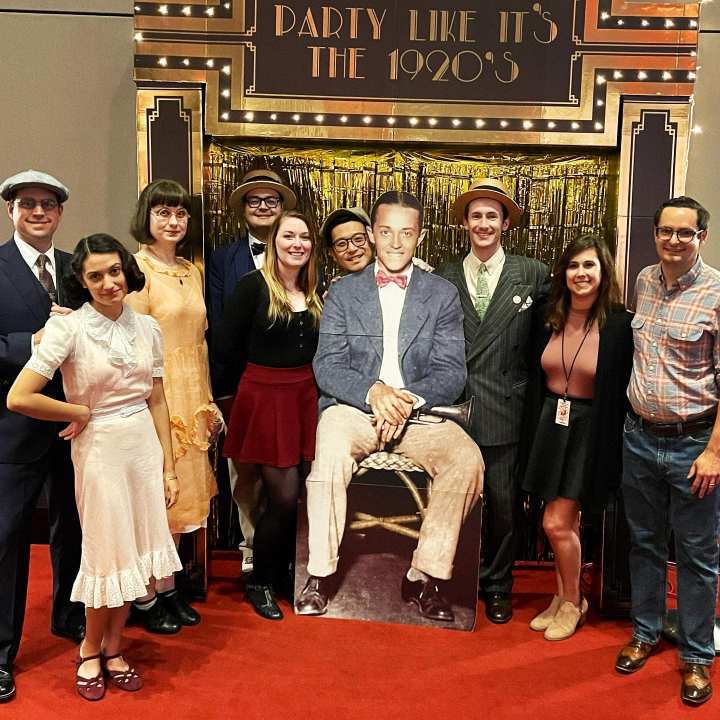
On Saturday, at 1 p.m., the Davenport Public Library at 6000 Eastern Ave., will celebrate 100 years of recorded music through conversations with Dr. Charlie B. Dahan and Bob Jacobsen, who will talk about Bix and Gennett Records.
The Bix Museum (on the lower level of Common Chord, 129 Main St. Davenport, will host an Open House Saturday from 3 p.m. to 7 p.m. as they celebrate re-opening following renovations after the downtown flood last April.
On Sunday, March 10 is the Bix Birthday Bash, with music by Josh Duffee’s Graystone Monarchs, from 2 p.m. to 4:15 pm., Viking Club of Moline, 1450 41st St. VIP holders can attend a 12:45 p.m. meet and greet.
The birthday bash tickets are $25 General Admission, and $50 VIP includes a meal plus meet and greet. Catfish Jazz Society, Bix Museum, and Bix Society members can purchase GA tickets for $15, available HERE. Reservations are recommended, tickets will be sold at the door. This is an all-seated show. VIP tickets are reserved while GA is first come. Dinner is available for $10 and there will be a full bar service.
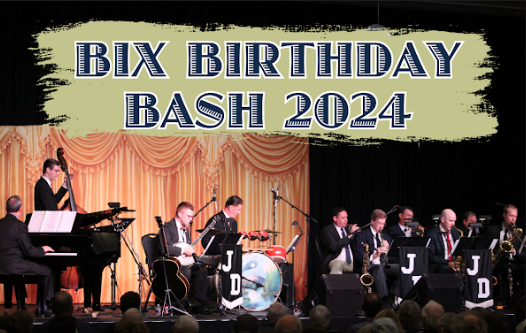
“We’re celebrating the centennial of his records, we’re celebrating his birthday and we’re celebrating being open and we’re just kind of celebrating the history of jazz, the history of Davenport,” Bix Museum director Nathaniel Kraft said Wednesday afternoon.
“It’s the only time people will hear Don Murray’s saxophone played. He died 95 years ago and the saxophone has never been played since,” he said. The 1923 tenor sax is normally on display in the museum.
Don Murray was born in Joliet, Ill., attended high school in Chicago, and was a member with Bix in the Jean Goldkette Orchestra, and played clarinet on Bix’s classic “Davenport Blues” in its Gennett recording Jan. 26, 1925. Murray died five days before his 25th birthday, on June 2, 1929, at a Los Angeles hospital after injuries sustained in a freak automobile accident.
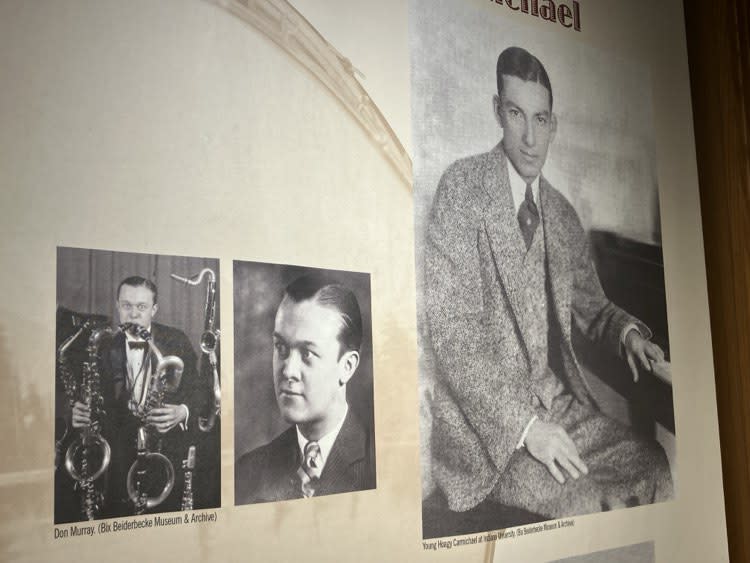
Apparently, he was standing on the running board of a moving roadster and fell; he struck the back of his head on the pavement and was then hospitalized with serious head injury. Murray is buried at the Memorial Park Cemetery in Skokie, Ill.
This 1923 gold-plated C.G. Conn tenor saxophone and early 1920s Otto Link mouthpiece was owned and used by Murray, and donated to the Bix Museum in February 2020 by his great-nephew in the Chicago area, Kraft said. A popular model for professional musicians of the period, this saxophone is covered in intricate engravings.
It took two years to restore it, by Lee Stofer of Camanche. Only 1,000 of that kind of sax were made and it was hard to find parts, Kraft said, and Sunday will be the first time the instrument has been played in 95 years.
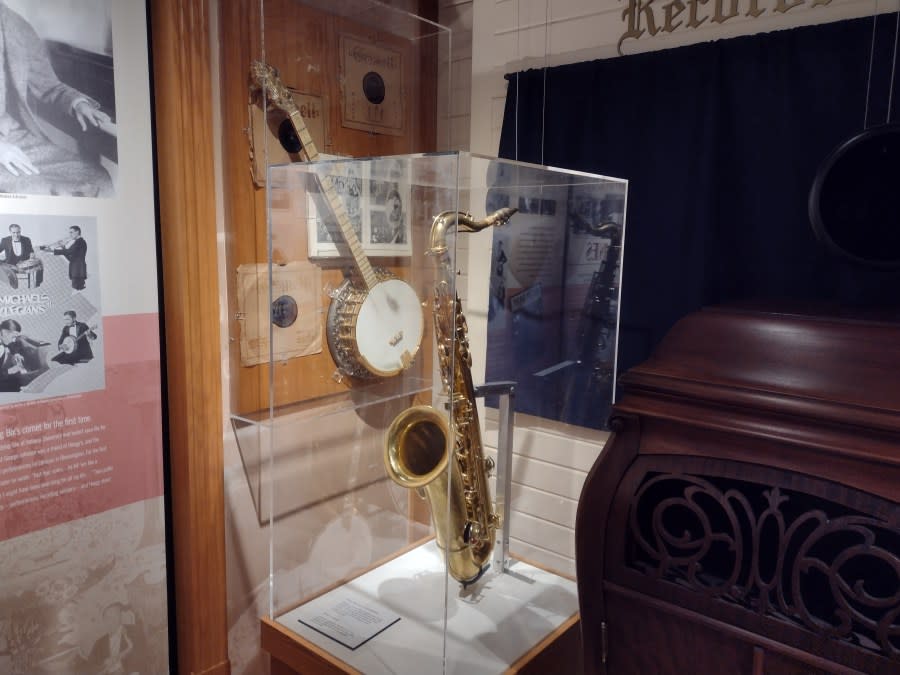
Leon “Bix” Beiderbecke (1903-1931), born in Davenport, became a jazz legend in his short lifetime, bringing an amazing new energy and unprecedented maturity to the music and influencing generations of musician, according to a summary of Saturday’s library talk.
On Feb. 18, 1924, Bix and a group of musicians known as the Wolverines Orchestra recorded their first music at a small studio in Richmond, Ind., named Gennett Records. Bix’s first record was “Jazz Me Blues” and “Fidgety Feet.”
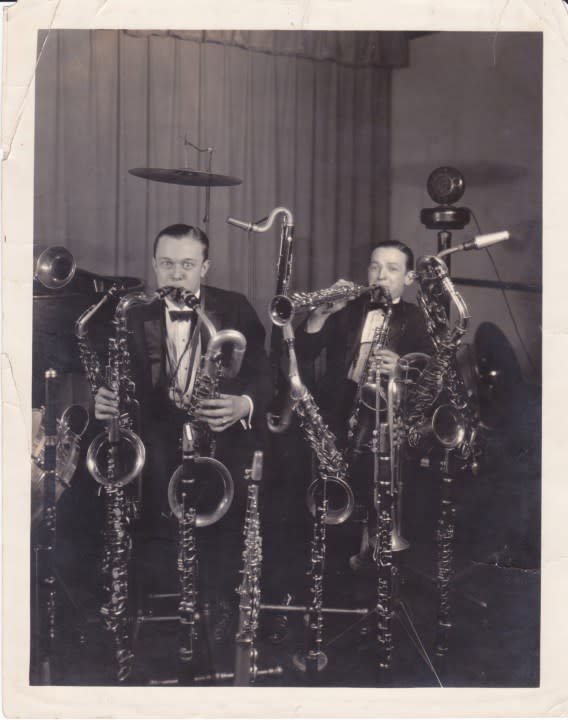
As the recording branch of the Starr Piano Company, this studio produced some of the earliest recordings by music greats such as Louis Armstrong, King Oliver, and Hoagy Carmichael, and produced for others such as Jelly Roll Morton, Blind Lemon Jefferson, Charley Patton, and Gene Autry.
Guest lecturers
Dr. Charlie Dahan is a professor in the Recording Industry Department at Middle Tennessee State University. He has co-authored two books on Gennett Records, including the 2023 released discography through UCSB’s Discography of American Historical Records, and three successful National Register for Historic Places nominations: FAME Studios, Hank Snow’s Rainbow Ranch, and the King Records Buildings.
His book Don’t Lose Your Good Thing: Saving America’s Historic Recording Places will be released by SUNY Press in 2024. He serves on the boards of the King Records Legacy Foundation, the Starr-Gennett Foundation (Advisory), and Sweet Relief Musicians Fund. Previously, he was the A&R Director at Shanachie Records and a talent agent with the Roots Agency.
Kraft said Dahan knows everything about Gennett’s recording history. Bix’s and Louis Armstrong’s first records were for Gennett.

Bob Jacobsen is a past president and long-time board member of the Starr-Gennett Foundation, Inc. in Richmond, Ind., where he is asked frequently to talk with visitors and tourists about the Gennett Records Walk of Fame and its honored musicians. Jacobsen has attended the Bix Beiderbecke Memorial Jazz Festival in Davenport since about 2006.
This Saturday program is offered through a partnership with the Bix Beiderbecke Museum & Archive, in celebration of Bix’s 121st birthday.
“If you’re from the Quad Cities or just passing through, it’s a great museum,” Kraft said. “It talks about the history of local jazz legend and it also talks about American history, a lot of different musicians. It talks about the story of the Quad Cities and America in the 1920s. It’s a lot of stuff I think people are really interested in and it’s done very well.
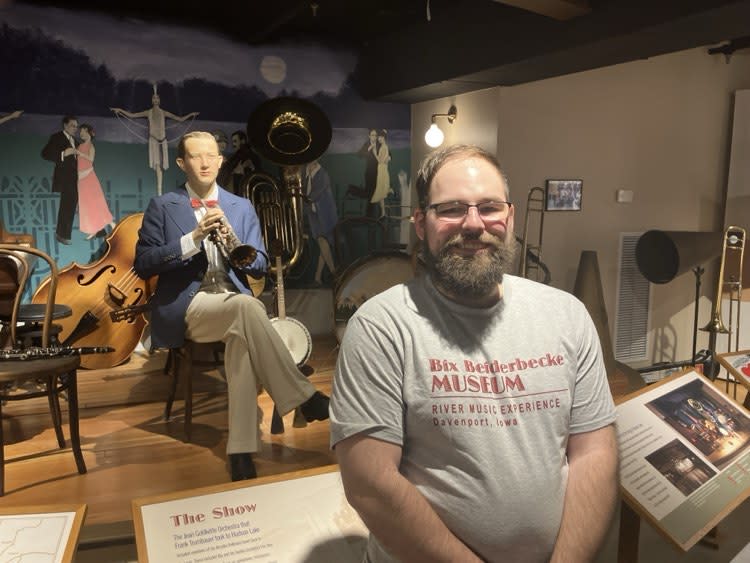
“This is a very special museum, I think a lot of people take for granted sometimes, but they also just don’t know much about,” he said. “If you’re interested in music history, the Roaring Twenties, you’ll find something interesting in the exhibit.”
The Saturday open house at the museum will be from 3-7 p.m. following the talk at the library to celebrate being open following our flooding last year. Admission is always free with donations encouraged.
Recovering from flooding
After last spring’s flooding, the museum had to remove water damaged drywall and replace it, but luckily none of the collection or cases were damaged, Kraft said.
“We got through it unscathed, but we had a contractor that said it’d be a seven-day job, and then they disappeared for three months,” he said March 6. The museum had to find another contractor over the summer, which worked here and there. The restoration was done by November and the museum just reopened by appointment only.
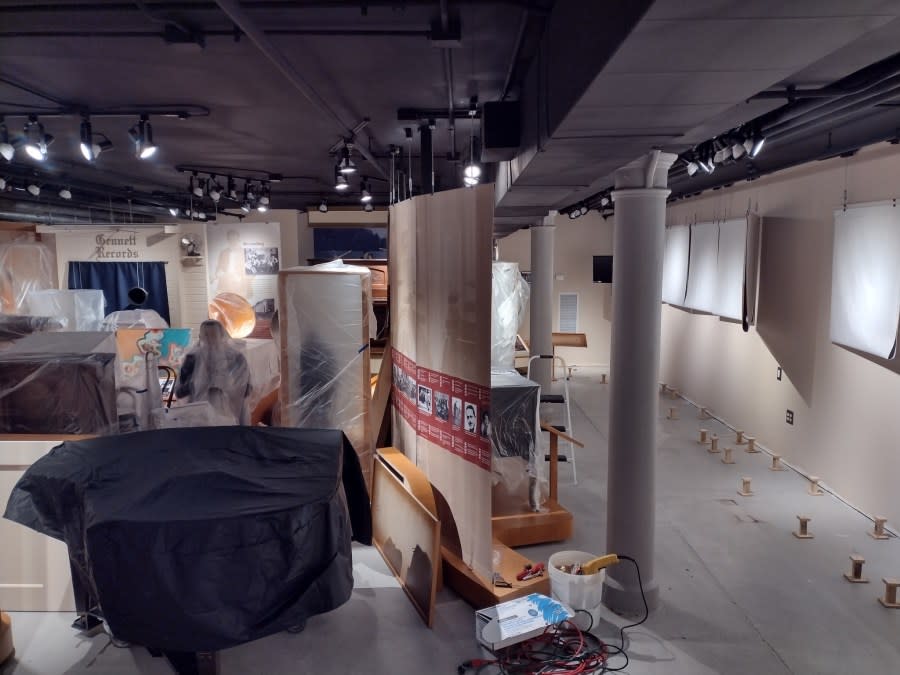
Last month, they reopened regular hours – 10 a.m. to 5 p.m. weekdays, and Saturdays 10-2 or by appointment.
“We could have been opened by mid-May,” Kraft said, noting they missed about 1,000 guests they’d normally get when they closed, especially during the annual Bix jazz fest in August.
The entrance to the museum was carpeted and that had to be removed, and Common Chord moved its offices from the lower level to the second floor.
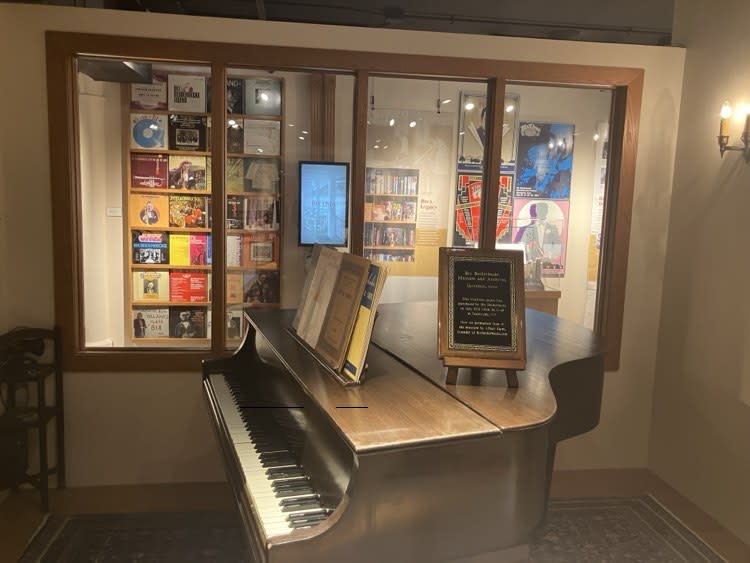
The museum is raising money for a possible move downtown, to get away from possible flood risks in the future. “We’re kind of hoping to get back on our feet,” Kraft said. “We were flooded in 2019; 2020 we were closed for a year, it flooded in 2023.”
In 2019, the museum was closed from May to August, after the levee broke downtown.
A “new” piece out on display in the museum is the Bix family piano, which was in the home of paternal grandparents Charles and Louise Beiderbecke (today’s Beiderbecke Inn bed and breakfast, 532 W. 7th St.). The Beiderbecke family enjoyed many family gatherings in their home where the grandchildren would all put on performances for the family. Bix’s performances on this piano were always the most enjoyed.
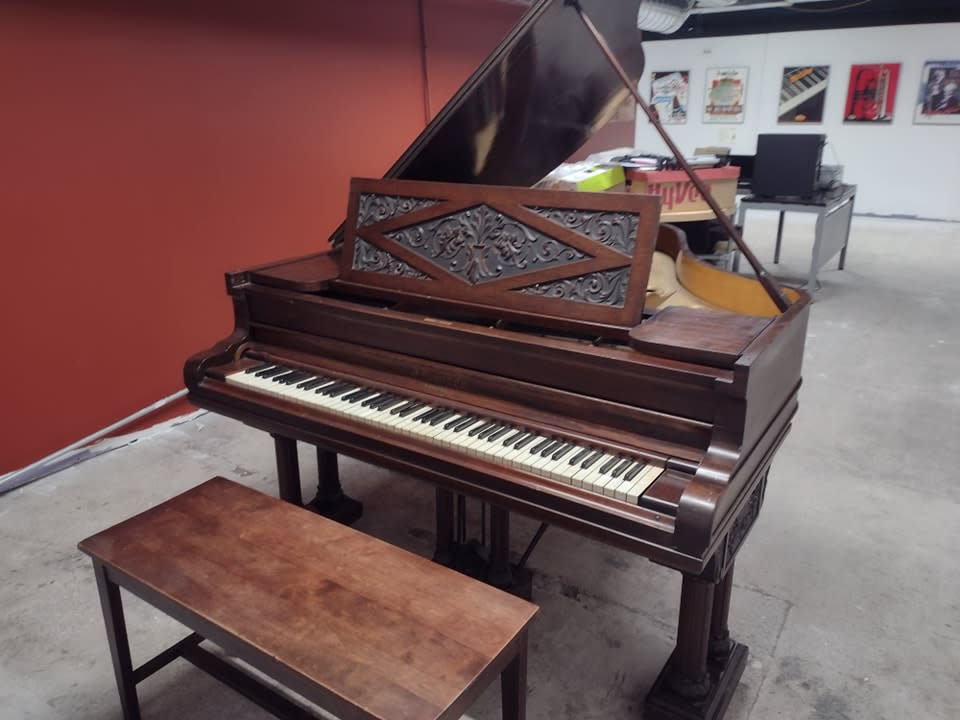
Bix and his friends would spend a lot of time growing up playing on his grandmother’s piano as Bix would always play the songs they heard at the movie theater or from the passing river boats and dancehalls shortly after returning home from hanging out downtown. This 19th-century piano is a Julius Bauer Grand made in Chicago and sold by the Schmidt Music Company in Davenport.
The piano was covered under a stairwell since 2017 (when the Bix Museum opened), and they even forgot it was there, Kraft said. The late Bix Society board member Gerri Bowers asked about it one day, inspiring them to put it on display, he noted.
A 100 Club
Last year, the Bix Birthday Bash was at the Columbus Club on West 35th Street in Davenport, the first time they had it since COVID. The Graystone Monarchs (led by drummer and Bix expert Josh Duffee) have never played the birthday event before.

The museum has a new 100 Club, which seeks $100 donations in honor of this centennial year. It really hasn’t been advertised, after one Bix Society member gave $100 and suggested it as a museum fundraising tool during the 100th anniversary year, to end next Jan. 26, 2025, the 100th anniversary of Bix’s recording of his “Davenport Blues.”
Bix played cornet on the Gennett recording in Richmond, Ind., with His Rhythm Jugglers, including Tommy Dorsey on trombone, Paul Madeira Mertz on piano, and Don Murray on clarinet.
Bix joined the famous Paul Whiteman Orchestra in October 1927. Whiteman commissioned the immortal, iconic “Rhapsody in Blue” from George Gershwin, which he premiered 100 years ago. The work (with Gershwin at the piano) premiered in a concert titled “An Experiment in Modern Music” on Feb. 12, 1924, in Aeolian Hall, New York City.
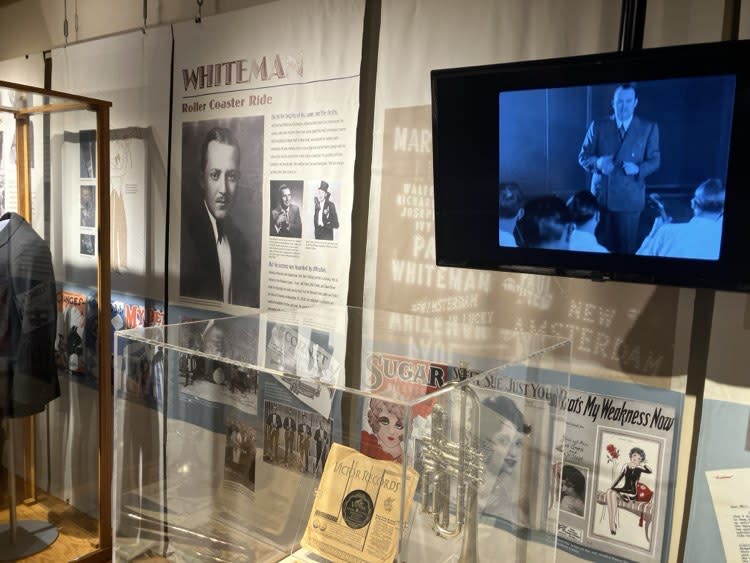
Bix had moved to Manhattan in 1927, and later moved to Queens, where he died Aug. 6, 1931 from pneumonia and alcoholism.
On March 9, that night in 1924 (the night before Bix’s 21st birthday), Louis Armstrong played the Col Ballroom in Davenport, just about five days after they played for a crowd of 2,000 at the Col, and attracted 2,000 again on March 9, Kraft said.
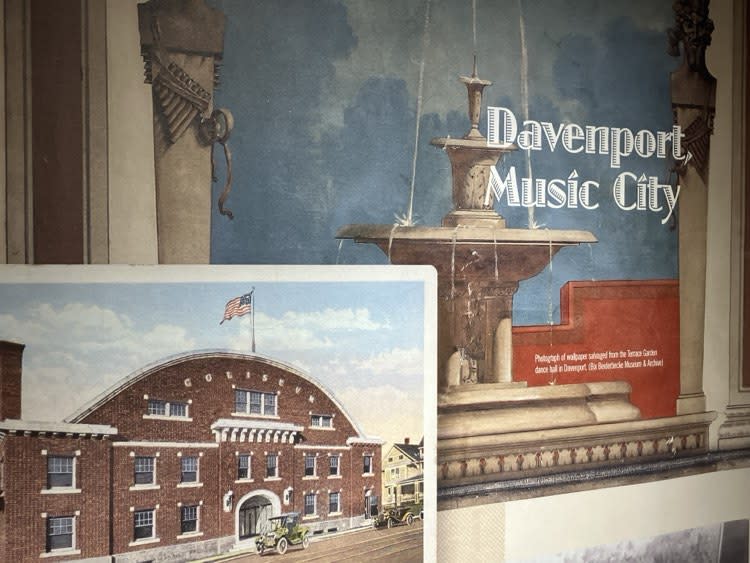
“Louis played here 100 years ago,” he said, not sure if Bix was in that audience (it was likely he was touring with the Wolverine Orchestra). Gershwin and Whiteman brought “Rhapsody in Blue” to the Col in Davenport May 23, 1924.
Bix taught himself piano starting at age 3, and he was self-taught on the cornet, starting when he was about 14, Kraft said.
Opening family home?
He spoke with Italian filmmaker Pupi Avati recently while they were filming at the Bix boyhood home (1934 Grand Ave.), which the Avati brothers have owned over 30 years.
“It looked like they got the inside all nice and cleaned up; it looked really nice in there,” Kraft said. “He expressed he would love to make sure the house gets fixed up. We said we’d try to support them any way we could. We’re not sure what the next step is. We’re waiting to hear what they want to do.”
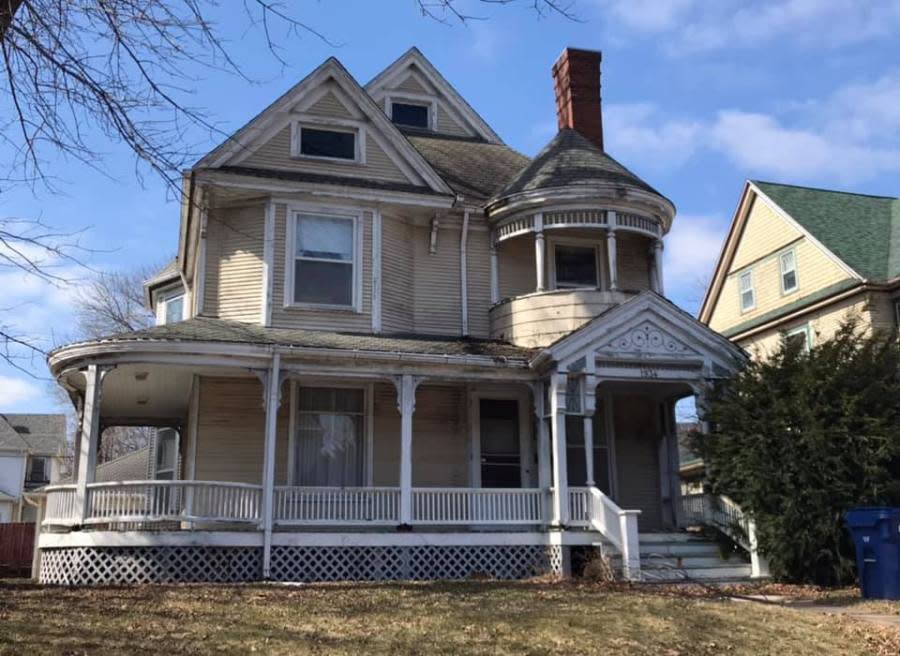
“It’s their house and we just want to make sure the house is taken care of,” he added. “We’re very supportive of everything they’re doing.” Pupi wants to open it eventually for tours, Kraft said.
He didn’t get to visit the museum during their week here. Kraft wants to keep the museum free and encourage donations.
“We want everyone to see it, but we want people to donate,” he said. “I think people are very generous when you give them the opportunity to. I let people see the museum first and let them decide.”
In 2022, the museum had over 1,000 visitors, and when Kraft started as director in early 2020, the museum had just averaged 300-500 a year.

The open house is meant to raise awareness and let people to know they’re back open. Kraft is seeing more school groups come through.
“We want the community to see us,” he said. “There are a lot of great organizations in town and a lot of people don’t know we exist yet. We do something great for the community.”
A possible move is open-ended, Kraft said, depending on funding and finding the right spot.
“We’re hoping if we do move, it’s before we get water in,” he said. They pay rent at Common Chord (the former River Music Experience). “It’s a good building, but unfortunately we’re in the basement.”
For more information on the museum, click HERE.
For the latest news, weather, sports, and streaming video, head to WHBF - OurQuadCities.com.